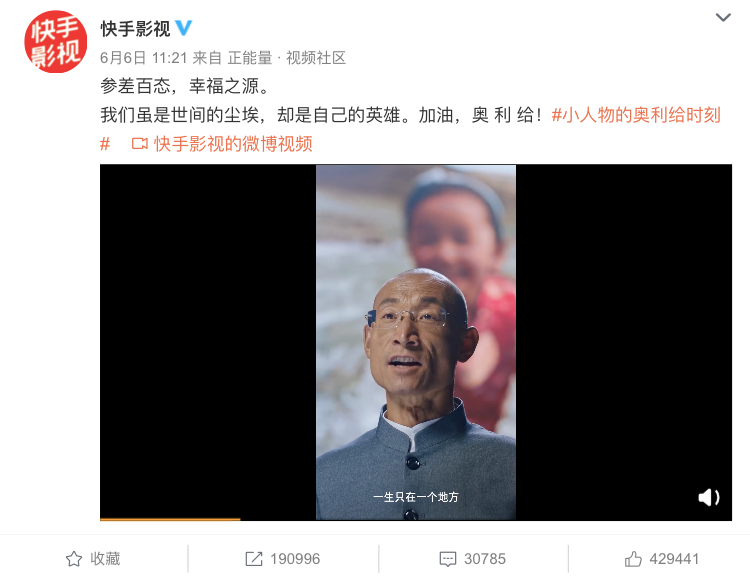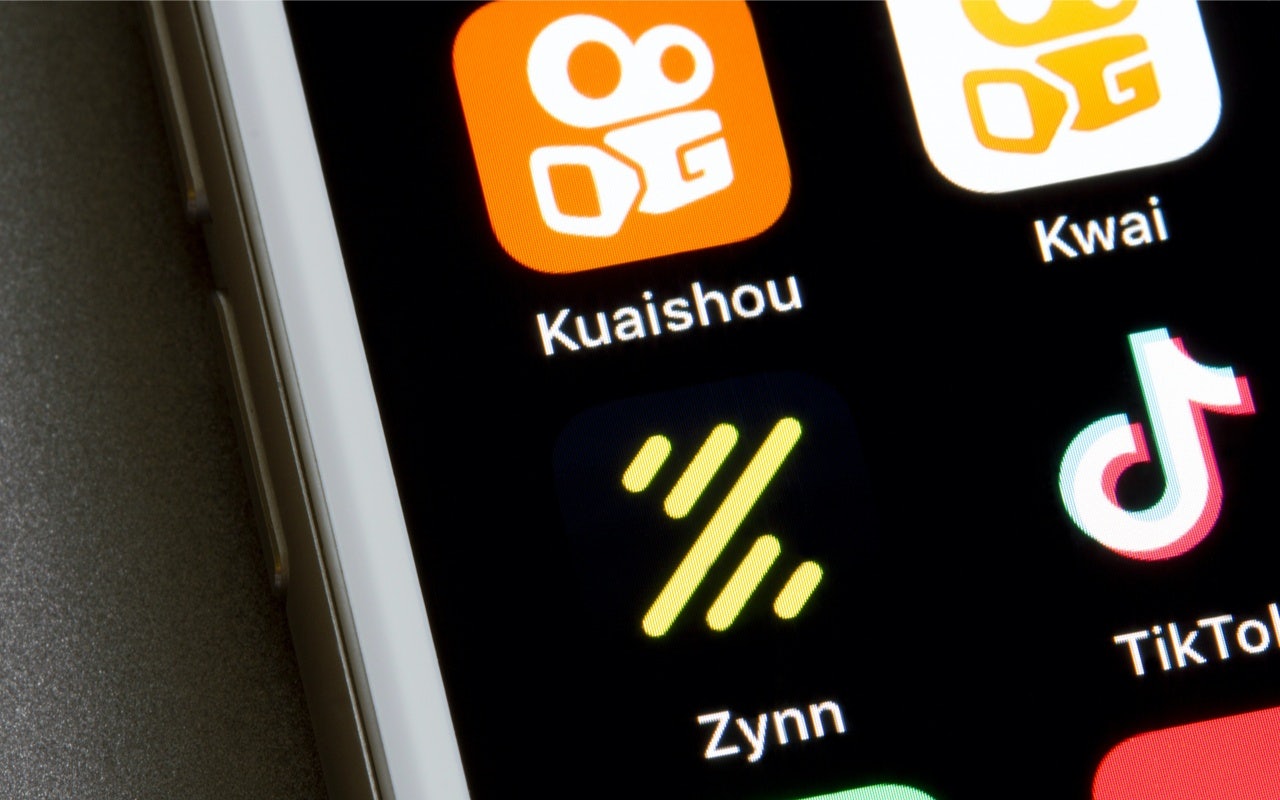Kuaishou wasn’t made for luxury. The majority of viewers on this short video platform are not millennials and Gen-Zers from first-tier cities like on Douyin. Instead, the app is known as a window into China’s lower-tier cities and the rural population. A montage from Kuaishou’s latest promotional video called "See" says it all: a teenage boy dancing in front of a mountain backdrop, his clothes made of leaves; a girl singing and playing guitar while herding cows. The video’s voice-over narrator, who’s also a fellow Kuaishou content creator, sums Kuaishou up perfectly: “Don’t go into strangers’ lives with apathy, those who call here ‘not hip enough’ without giving much thought should come here and see it for oneself.”

Kuaishou was born as a GIF-making app in 2011 and pivoted to a short video model a year later. It currently boasts 300 million daily active users, according to the company this February. The Tencent-backed start-up finished its Series-F round of funding last December, which boosted its valuation to $28.6 billion, more than Twitter’s market value of $25 billion as of publishing. Most recently, as the trend of livestreaming e-commerce sweeps over China, Kuaishou has started showing its ambition through heavy investment in this sector, which presents an opportunity for luxury brands.
Kuaishou entered the e-commerce space in 2018 with a helpful feature that allows users to directly shop within the app. Riding on the wave of content e-commerce and livestreaming, the platform has given rise to Luo Jia, the self-proclaimed “luxury livestreaming king,” who hosted sessions for Emporio Armani and Versace. Chinese luxury e-tailer Secoo also launched a 24-hour livestreaming channel on its new Kuaishou account during the platform’s inaugural 616 Shopping Festival this June, which sold over 105 million yuan ($14.8 million) in luxury goods from the likes of Louis Vuitton, Armani, and Gucci during the first five hours, as Jing Daily previously wrote.

Luxury brands should also keep an eye on its moves behind the scenes from its partnership with JD.com to building infrastructure for livestreaming e-commerce. For the past 618 Shopping Festival, which was created by Alibaba’s rival JD.com, Kuaishou’s strategic role was of paramount importance. The marriage of the content and e-commerce giant in supply chain, brand marketing, and data capabilities will become more visible in the next few years. In late June, the Beijing-based unicorn announced an investment of three billion yuan ($440 million) for a new e-commerce headquarter in Chengdu. It also plans to build China’s first “5G+ Short Video Industry Foundation” that includes an incubator for short video content creators and Multi-Channel Networks (MCN) agencies.
However, no platform is perfect. Like many other competitors, Kuaishou has been under scrutiny by the Cyberspace Administration of China for some accounts’ vulgar and suggestive content, and it has purged some 3,000 such accounts over the last few months. This is one of the very few caveats that luxury brands should keep in mind before linking their brands with this platform.
Today, Kuaishou is facing an increasingly crowded landscape in the short video and livestreaming space. In addition to the established contenders like Douyin and Xigua, newcomers like Weibo have started testing its short video platform internally, and Tencent’s own livestreaming is also on the horizon. But with such a precise niche that no others can claim its own, Kuaishou presents itself as a strong option from luxury brands to connect with China’s massive and lucrative audience.
While leading Chinese social media platforms like Weibo, Little Red Book, and WeChat are key to connecting with Chinese consumers, Western brands would be wise to keep abreast of any new digital platforms if they want to retain a competitive edge in China’s ever-changing consumer landscape. Our series, App Watch, examines rising applications and digital platforms relevant to the fashion, beauty, and general luxury space in China.
